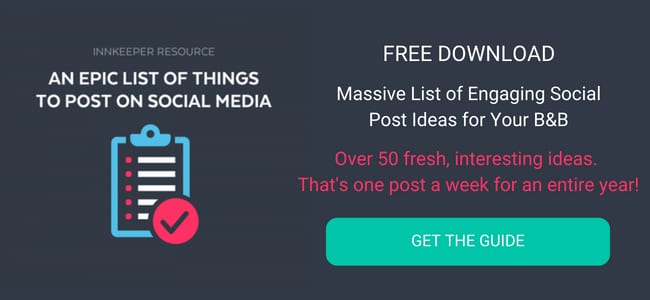Facebook is a powerful marketing channel every business needs in order to reach new customers and maintain relationships with old ones. But building up a successful Facebook presence doesn’t happen just because you create a page for your business. It might take months or even years for you to attract substantial new followers, build a solid fan base, and create a unique online “persona” that encourages people to “like” and “share.” Before you do any of that, you need a solid foundation to work from. There are several important changes you can make to your Facebook page to ensure you reach more potential visitors and create a clear and user-friendly experience once they click onto your page. Here are 10 easy ways to optimize your Facebook page today.
1. Cover Image
The cover image is the photograph that appears at the top of your page like a header. Your cover image should be a high quality photograph showcasing your property and/or destination. Update the cover image seasonally, just like you do on your website. That means you should have photographs of your property (or your destination) covered in snow during the winter, surrounded by autumn leaves in the fall, bursting with flowers in the spring, and so on. If you can’t afford a professional photographer to take these pictures, download our guide to Photography for Innkeepers for tips on how to take and edit high-quality photographs on your iPhone.

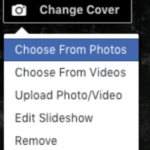
2. Profile Image
While your cover image should showcase your beautiful property or destination, your profile picture should focus on your brand. Your profile image needs to be immediately recognizable as your brand. It is what your followers will see when you post something or when they click onto your page. Your profile picture should be square, 180 x 180 pixels and readable when viewed at 40 x 40 pixels, which is how it will appear in the newsfeed. People should be able to identify your posts even when they are scrolling quickly. Always try to include your logo on your profile image so the association is immediate and clear. If you don’t have a logo, your image could be of your signage with your brand name on it. You could also include a photograph of the innkeeper(s), if that is consistent with your brand.

3. Choose a Facebook Page Template
Facebook has recently begun offering various page templates you can use instead of the standard, default template design. You can choose from several different template options based on your business type, though it looks like they typically suggest the “Service” or “Business” layouts to customers. While there is nothing wrong with the standard template, the new templates offer different layouts and more customization. For example, the Business” template creates an ‘offers’ tab where you can showcase your latest deals or promotions. Tabs can also be dragged & dropped so offers are at the top, readily visible to the viewer. In addition to the “offers tab,” the Services template offers a “services” tab, which allows you to list out services you offer, and a “shop” tab, which allows you to feature products. This template is a bit better for properties with spa/massage services, stores, gift shops, restaurants, and so on. Feel free to experiment and choose the template that’s best for you. Click here to learn how to change your Facebook page template.
4. Name, Address, and Phone Number
Always include the NAP, or the Name Address and Phone Number, of your business on your Facebook Page. Make sure this information is the same as it is on your website, Google My Business Page, Twitter, and so on. If possible, use your local number instead of an 800 number as your primary number. You can showcase your 800 number as an alternate.
5. “About” Information
View your About section like a marketer would. Craft a quick elevator pitch, preferably one or two sentences, that sells your destination as a unique and attractive lodging choice. Why would a guest choose to stay with you over another property? Who is your ideal guest? Target your summary to them. You can also use keywords here, but use them sparingly.
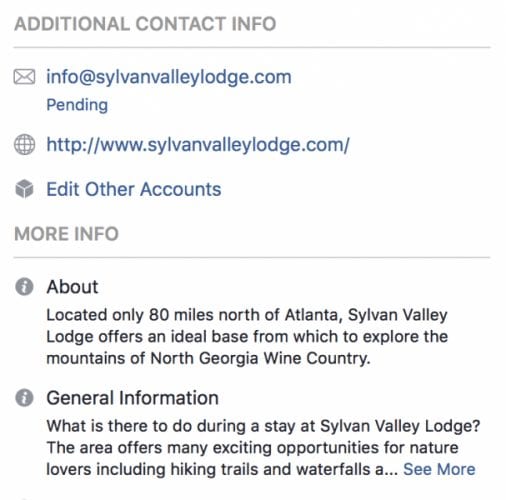
6. URL
Always provide a link back to your website’s homepage on your Facebook page. And of course, your URL should be up-to-date (in the http:// format).
7. Call to Action
Every Facebook page should have a Call to Action button that says “Book now” or “Check Availability.” We recommend putting the button beneath your cover photo so it is most accessible. Like the URL, make sure it is correct and up-to-date. You do not want this button to be connecting visitors to an old or outdated booking engine, so check yours right now. You can add the Call to Action button by clicking “+ Add a Button” beneath your page’s cover photo and then following the additional steps.
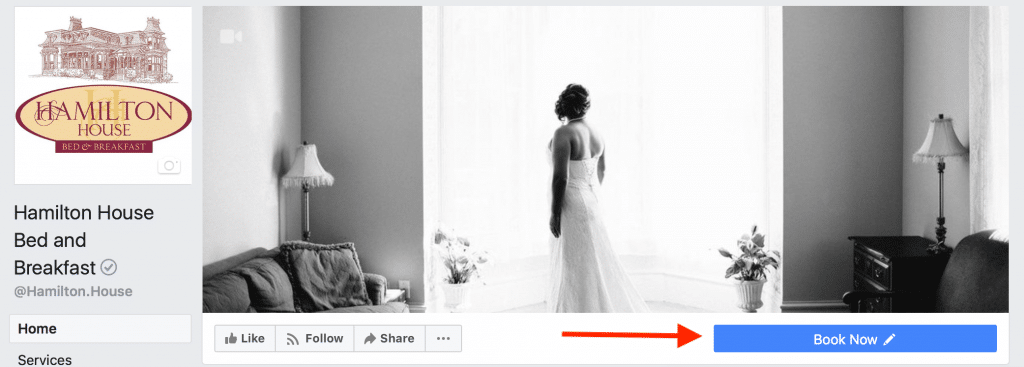
8. Messaging
Messaging enables potential guests to contact you directly through your Facebook page. It is an easy and personal way for you to communicate with your guests. But remember, once you enable messaging, people will expect a response. Facebook will show visitors your response time, whether that is “usually responds in 20 minutes” or “rarely responds.”Only turn on messaging if you are sure you will be able to respond to messages promptly and regularly. You might even want to pick a single person on your team to be in charge of responding to Facebook messages. To learn how to get the coveted "very responsive to messages' badge, click here.
You can set up customized welcome greeting that displays when people visit your page as well as an instant reply, which will notify visitors who message you with a customized statement like, “We will respond to you but please feel free to call or email us in the meantime. Thanks!” This lets customers know you have seen their message and will get back to them soon. For more tips on using Facebook messages, click here.
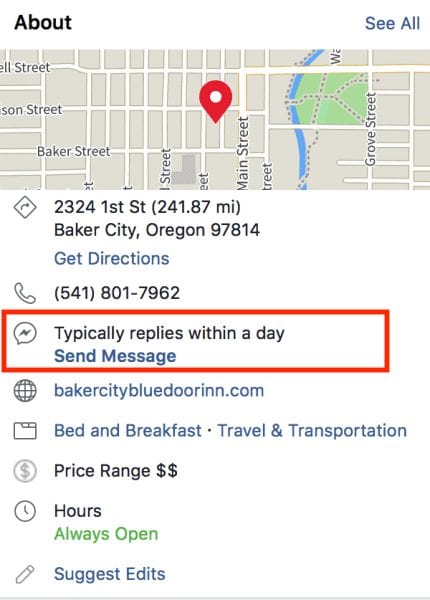
10. Add a "Subscribe to Email" Tab
Email is a highly powerful marketing tool that allows you to stay in touch with previous guests and build relationships with new ones. You can encourage email newsletter subscriptions from your Facebook page. Email newsletters are much more effective than social media posts at getting your message seen by your fans & followers. Here’s instructions for the popular email newsletter platforms Mailchimp and Constant Contact. If you’re using a different platform, check with them to see how to add a signup form to your Facebook page.
By making these easy changes to your Facebook page, you will lay a solid foundation that will bring more potential guests to your page and make their experience more user-friendly once they arrive. Once you have implemented these optimization tricks, you’ll be able to focus more on growing your following and sharing original, relevant, and high-quality content with your guests.
